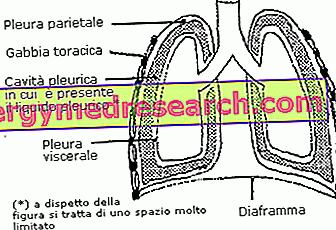Related articles: Cervical cancer
Definition
Cervical cancer is one of the most common cancers among the female population; it affects the uterine cervix, that is the terminal part of the uterus that opens into the vagina, and is, by incidence, second only to breast cancer. The main - but certainly not the only - risk factor is represented by the infection with human papilloma virus (HPV), a microorganism transmitted through sexual relations. Fortunately, thanks to the immune response, in most cases the infection does not produce particular symptoms or disorders, but it can remain "silent" while waiting to reactivate in the face of a decline in the immune system; moreover, in a small percentage of women, the virus can damage cervical cells and facilitate their evolution towards abnormal cellular forms (tumors). The pap test, together with the recent introduction of an anti-papilloma virus vaccine, are the most effective weapons of prevention.
Most common symptoms and signs *
- Miscarriage
- Dismennorea
- Pain during sexual intercourse
- Pelvic pain
- Vaginal hemorrhage in the early stages of pregnancy
- Menorrhagia
- Metrorrhagia
- Fetal death
- Blood loss after menopause
- Vaginal discharge
- polymenorrhea
- Vaginal bleeding
- Smelly vaginal secretions
- Retrospective Uterus
Further indications
The symptoms of cervical cancer can be completely absent, or so mild and nuanced that they go completely unnoticed. Also for this reason it becomes fundamental to undertake adequate screening campaigns, today based on the execution of a pap test every three years from 20-25 up to 64-70 years of age.
As cervical cancer progresses, decreasing the chances of treatment, the typical symptoms of the disease may appear: bleeding after sexual intercourse and slight pain during the same, watery or bloody vaginal discharge sometimes of unpleasant odor, pain in the region pelvic, vaginal bleeding outside the menstrual period or after menopause. Many of these symptoms are also common in various venereal diseases, but still deserve to be immediately submitted to medical attention to undertake timely treatment and limit complications.
In an advanced stage, cervical cancer tends to give metastasis and can be accompanied by various types of symptoms such as loss of appetite and weight, fatigue, abundant vaginal bleeding, loss of urine or feces from the vagina, back pain or legs and bone fractures for minimal trauma.



